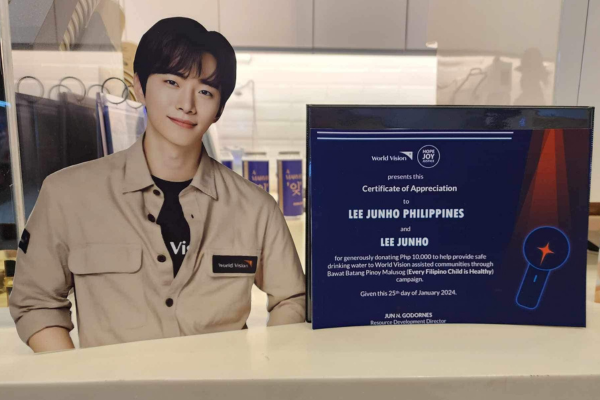Waste segregation schemes launched in BASECO
 The Philippines is the third-largest contributor of ocean plastics at 500,000 tons per year, according to a study by Ellen Mac Arthur Foundation.
The Philippines is the third-largest contributor of ocean plastics at 500,000 tons per year, according to a study by Ellen Mac Arthur Foundation.
“In Metro Manila, for instance, the Pasig River carries 63,700 tons of plastic waste annually that goes to Manila Bay. That’s like 10,000 elephants going to Manila Bay every year. And Manila Bay waste is 60% plastic,” shared Peter Nitschke, Philippines Development Manager of The Plastic Bank, an organization that helps lessen ocean plastic by turning it as a source of income for poor families.
To provide solution against the increasing garbage problem, the local government of BASECO in Manila partnered with corporate and non-government organizations to launch a waste management system that promotes environmental awareness and increased livelihood income for families.
Dubbed as “Community-Based Solid Waste Management System,” the project is composed of two waste segregation schemes called Pag-asa sa Basura or Waste to Wages Project, and Misis Walastik. Families who are able to trade in plastic materials to the Materials Recovery Facility (MRF) and to the designated junkshops will receive vouchers that can be exchanged for gift packs of grocery items or hygiene products.
“World Vision always aims to provide children with a safe and healthy environment. The Pag-asa sa Basura project is one of our many interventions in BASECO to promote children’s wellbeing and also to assist families in providing for the basic needs of their children,” explained Jun Godornes, World Vision Resource Development Director.
Under the Pag-asa sa Basura scheme, recycling entrepreneurs will segregate used plastic containers composed of polyethylene terephthalate (PET), such as plastic bottles and other hard plastics called “Sibak” that is used to package detergents.
Collected PET and Sibak can be exchanged for grocery items through coupons convertible to cash. Each coupon will also have incentive points which can be used to redeem facial products and shoes.
The Pag-asa sa Basura is a project of Proctor and Gamble (P&G), The Plastic Bank, and World Vision.
“Our country’s garbage problem is a huge challenge to solve. It requires collaboration from different private companies, government agencies and organizations. We, at Proctor and Gamble, promised to help address this problem by minimizing our product wastes and in promoting proper waste management in communities,” shared Anna Legarda, P&G Communications Head.
P&G has been at the forefront of promoting environmental sustainability through its zero-manufacturing waste-to-landfill that aims to eliminate manufacturing wastes from its more than 100 sites worldwide that end up in landfills. All these waste go to a worthwhile project that turns garbage to electrical energy that benefits the communities.
Another program being implemented in BASECO is the Surf Misis Walastik Program, Unilever Philippines’ flagship program on sachet recovery, which engages the community to collect flexible plastics and sachets that will then be converted into other useful materials. Philippine Business for Social Progress is also a partner in this program.
“Surf Misis Walastik aims to promote proper waste segregation, environmental protection, and clean communities. Engaging communities is key to an effective plastic waste management program,” said Ed Sunico, Unilever Vice-President for Sustainable Business and Communications.
BASECO barangay officials expressed their gratitude to their partner organizations and companies for supporting their efforts in addressing the garbage problem in their barangay.
“On behalf of all the barangay officials in BASECO, we extend our thanks to our partners who have been supportive of our work,” said Reynaldo Campañera, a council member.








